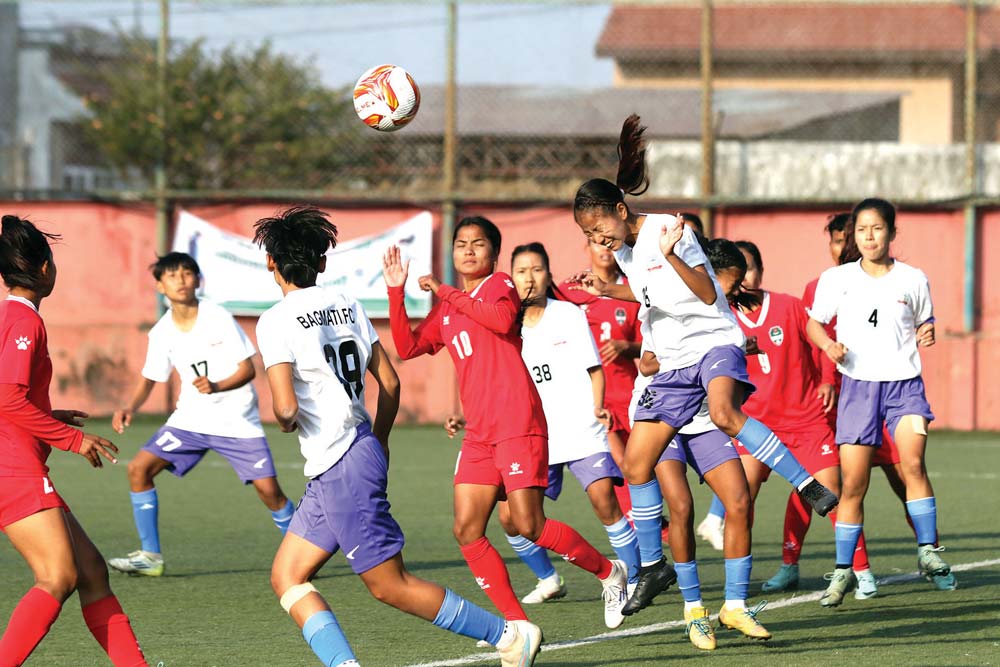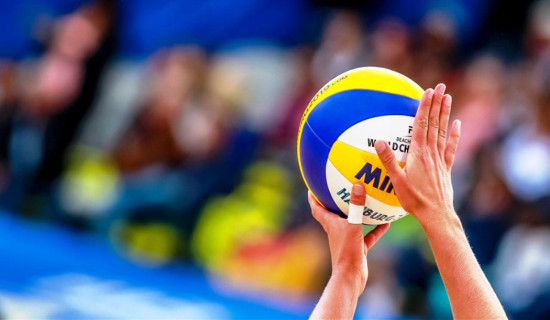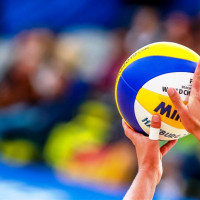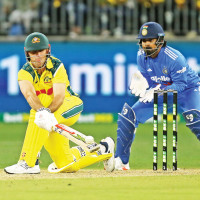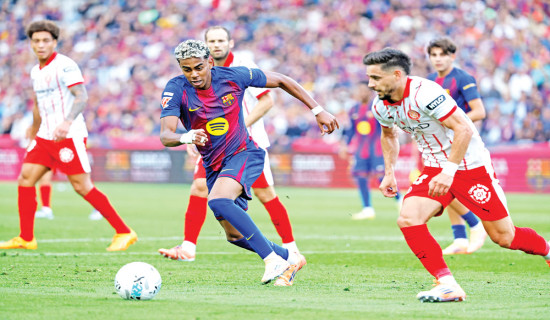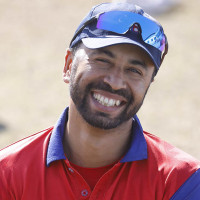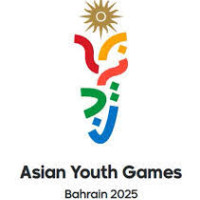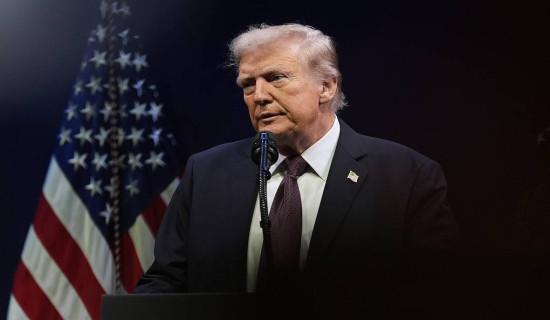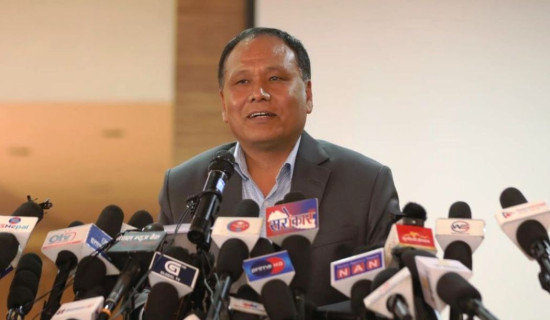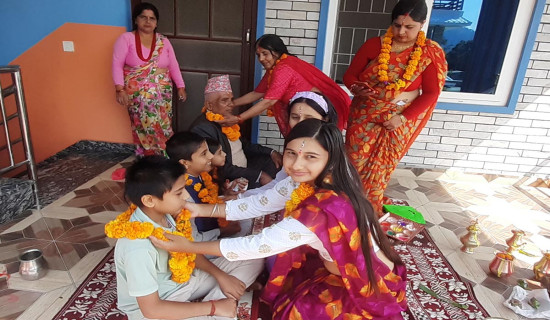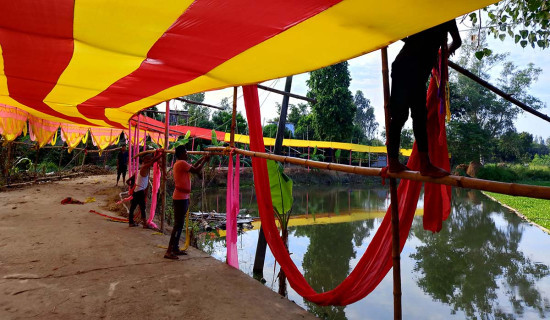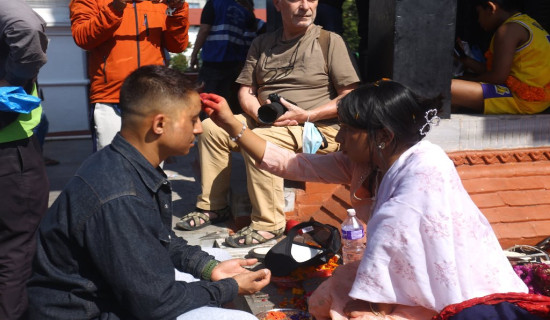- Friday, 24 October 2025
Domestic Football League Faces Crisis
"Nepali football isn’t dying." This sentiment was expressed by striker Gilepsie Jung Karki following a victory over Afghanistan in a friendly match held in Dushanbe, Tajikistan, in November.
Yes, Nepali football won’t die anytime soon, but it has undoubtedly hit its nadir. The fact that no top-tier domestic football league has been organised for over 18 months highlights the dire state of the sport in Nepal.
The All Nepal Football Association (ANFA), the governing body of Nepali football, has struggled to organise leagues on schedule. Plagued by financial mismanagement and a lack of resources, ANFA has shown indifference toward running the leagues.
Striker Karki’s statement speaks volumes about the poor condition of Nepali football. While the victory over Afghanistan after 13 years offers a silver lining, it also underscores the challenges the sport faces. Karki’s optimism may hint at the potential Nepali football holds, but without regular domestic leagues, such victories remain fleeting.
Playing an international match after a seven-month gap and registering a win with little preparation and no domestic league for a long time is undoubtedly a flicker of hope that Nepali football’s survival depends upon. However, this hope may soon fade if the nation’s football administrative body fails to treat it as a wake-up call.
Given ANFA’s current state, the dark cloud shrouding Nepali football is unlikely to clear anytime soon. As the organisation responsible for running football activities in the country, ANFA seems to be doing everything except its primary duty.
ANFA is the richest sports association in the country, as the popular game draws fans and revenue unparalleled to other sports associations. It is, however, going to be a once-upon-a-time story as the governing body of football is grappling with a financial crisis stemming from poor governance and internal conflicts.
ANFA organises the Martyr’s Memorial Football League under A, B, and C Division categories, along with women’s and youth leagues. However, its inability to lure the sponsors has made ANFA struggle to host the domestic leagues regular ly.
Additionally, domestic football is also losing its charm, with fewer fans attending matches. There was a time when the stadium would fill to capacity during top-tier league matches.
With the uncertainty surrounding the top-tier league, there has not only been a decline in spectators but also has triggered an exodus of national footballers seeking opportunities abroad. Over the past two years, the number of professional players leaving the country has increased significantly.
A league is the lifeline of football. It is also a bread and butter for players, coaches, referees, and technical officials, while also serving as a major income source for clubs and ANFA itself.
Nepali footballers cannot depend on the irregular leagues to solve their regular hand-to-mouth problem. No football means no money. So there are no choices for footballers other than to leave their passionate game and go abroad or choose other occupations.
ANFA somehow organised the third-division league this year and is gearing up to hold the second-division league after a long gap. After several postponements over three years, the B-Division league is finally slated to kick off on January 26. The last edition of the B Division was organised in March 2022.
Initially, the 14 second-division clubs were hesitant to participate, as they had not received their preparation funds from the previous season. After ANFA settled the dues and provided funds for the upcoming league, the clubs agreed to play.
While ANFA is having a hard time organising the top-tier league, it has focused on grassroots football by hosting Under-18 and Under-16 leagues. However, grassroots development becomes meaningless without a regular top-tier league. Young football stars emerging from youth leagues will not have any alternatives but to join the exodus of senior players.
ANFA’s struggles extend to women’s football as well. Last season, the women’s top-tier league was decided midway, without completing the second round. This season, it took ANFA three months to hold the final round of the women’s league (currently underway on worn-out turf at ANFA Complex) after completion of the first round.
To provide a boost to domestic football, the private sector has introduced the franchise-based Nepal Super League (NSL). The NSL has brought hope to Nepali players by boosting their earnings and attracting private investment. It has also succeeded in bringing fans back to the stadium.
However, ANFA’s inability to maintain a consistent football calendar has left players and stakeholders in dismay. By failing to set fixed dates for domestic leagues, including the NSL, ANFA has shown a lack of seriousness toward the sport’s development.
Where clubs make significant financial and strategic investments, proper planning and training are crucial for league football. With an irregular football calendar, the sustainability of clubs remains in question. Strict following of the football calendar is a must in the overall growth of domestic football.
It seems that the footballing events that run consistently are the Gold Cup tournaments held in the mofussil. In the absence of top-tier leagues, these regional knockout tournaments have provided a breathing air for football clubs and players, offering some relief in sustaining themselves.
The cash-strapped ANFA should learn from the organisers of the Gold Cup tournaments how to run events regularly and manage finances effectively. Additionally, ANFA could take lessons from the Cricket Association of Nepal (CAN), which has successfully attracted significant investment for the Nepal Premier League despite the country’s economic slowdown.
ANFA heavily relies on funding from FIFA and the Asian Football Confederation (AFC) to run football activities across the nation. However, its present financial crisis stems from poor governance and financial irregularities. ANFA’s office bearers have failed to adhere to FIFA’s financial rules, resulting in misappropriation of funds and reduced support from FIFA and AFC.
(Joshi is Associate Editor at TRN.)

